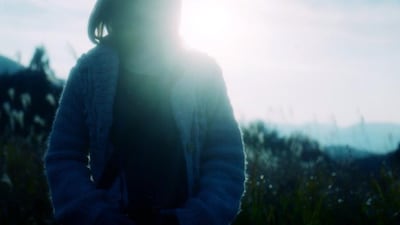In 1974, when Haruki Murakami was in his mid-twenties, he and his wife opened a small bar in a student district of Tokyo. They wanted to avoid a conventional life and to instead provide themselves with an environment in which they could meet interesting people and listen all day to their favourite records. It involved incredibly hard work, but when they were not running their business, Murakami was grateful to be able to devote himself to his two great passions: music and books.
At this stage he had no idea that he would one day be a novelist. He would simply read, listen to music and work (“Looking back, all I can remember is how hard we worked”). Then, in 1978, he attended a baseball game at which the sound of an unusually well-struck ball prompted in him a moment of revelation: “I think I can write a novel.”
Following the game, he furnished himself with a fountain pen and a sheaf of paper and, each night after work, sat down to write.
Over the next couple of years he produced his first two novels: Hear the Wind Sing and Pinball, 1973. These works have previously only been available to English readers in two obscure translations from the 1980s, so to have them collected here in a single, affordable volume, newly translated by Ted Goossen, is a great treat – both for Murakami enthusiasts and for the more casually interested reader.
The two short novels form the initial instalments of what is known as Murakami's Trilogy of the Rat (the third volume of which has long been available in English as A Wild Sheep Chase), which takes its name from a character who features prominently in each book. In the first of them, Hear the Wind Sing, the unnamed narrator is a biology student in his 20s. Over the course of 40 short and engaging chapters, he tells the story of his relationship with a girl whom he finds unconscious one night in a bar and who, in classic Murakami style, is mercurial, mysterious and elusive. Into this narrative he weaves reflections on the deaths of uncles and girlfriends; on the nature of writing; on student politics; on pop music; on a world that is characterised by the transience of all things.
This sense of transience, and the sense of alienation that can result from it, is also present in Pinball, 73. Here the narrator offers an account of his sometime obsession with pinball and his wish to rediscover the machine he used to play; his life as a freelance translator; and the relationship he finds himself in with a pair of identical female twins ("They were perfect copies ... they responded to the same stimuli in precisely the same way"), who appear in his apartment one morning without explanation. Alongside this story, the narrator chronicles the fortunes of the Rat, who is now not the vitally blunt character that we find in Wind, but a man who seems "as powerless and lonely as a winter fly".
The vigour and playfulness with which Murakami handles these peculiar, shifting stories makes for a volume that even those unfamiliar with his writing are likely to enjoy, and there is plenty here for the aficionado, too – not least in the form of Murakami’s favourite themes (mutability, loss, love) and motifs (ominous wells, mysterious women). But anyone expecting a high standard of writing from these books will be disappointed. Their dominant mode is that of cliché: characters “sweat like a pig”; have “time to kill”; gaze with “bleary eyes”; complain that they are “dead tired”; endure rain that is “freezing cold”; sit in cars that are “stifling hot”.
Such infelicities amount to a significant weakness. But the reader who can look beyond that weakness will find in Wind/Pinball a pair of early literary excursions that are never less than insightful and intelligent; brisk and diverting; unusual and transporting; and that offer a fascinating insight into the imagination of a young writer who would go on, as it is phrased at the beginning of Hear the Wind Sing, to "tell the story of the world in words far more beautiful than these".
This book is available on Amazon.
Matthew Adams is a London-based reviewer who writes for the TLS, the Spectator and the Literary Review.
thereview@thenational.ae

